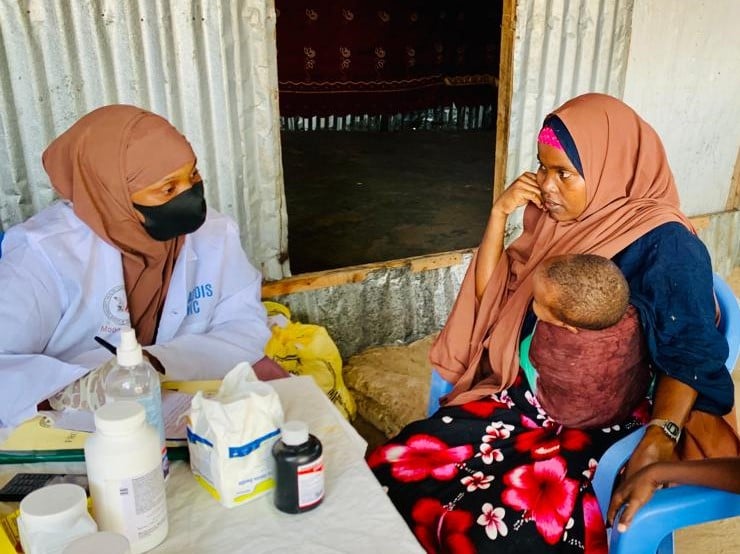
Improving polio coverage through minority IDP inclusion in Somalia
Duration: August 2022 – August 2023
Countries: Somalia
What is this programme about?
This programme aims to discover if, why and how, a subset of households is being missed in polio vaccination campaign rounds in selected districts in Banadir and the Afgooye corridor in Somalia. These areas are home to a high minority population and the majority of Somalia’s internally displaced persons (IDPs). The programme will reach this understanding by working with representatives from minority communities and polio vaccination teams in IDP camps, as well as carrying out research into the inclusion of IDPs and minority clan members in vaccination campaigns. As part of the research, the vaccination programme will be reviewed through a minority inclusion lens. In cases where being from a minority community contributes to lower rates of vaccination, an understanding of the causes will be sought to take the necessary steps to address them so that minority children can benefit from vaccinations.
Why are we delivering this programme?
Despite the best efforts of many actors, a longstanding polio outbreak is ongoing across Somalia. Vaccination programmes aim to ensure all children have immunity but security challenges as well as other factors mean that vaccination coverage is still not at the required level. It is not known what impact, if any, being a minority household might have on vaccination coverage.
The issue of minority inclusion in both humanitarian and development programs is significant in Somalia but often neglected. Studies done by MRG on minorities in Somalia have documented human rights abuses and discrimination affecting a wide range of minority communities, as well as the plight of minority women.
What are we doing?
- Providing supportive monitoring of polio campaign vaccination teams in IDP camps in selected districts of Banadir and in the neighbouring Afgooye corridor area.
- Carrying out a learning review of routine childhood vaccination programmes in the selected areas with an inclusion lens, to identify the root causes of households being missed or refusing vaccinations.
- Co-creating with local and international health agencies and communities, feasible, affordable, and effective solutions to the identified barriers or factors that lead to incomplete vaccination of children in these areas.
Who are our partners?
- Marginalized Communities Advocacy Network (MCAN) is a Somali community-based non-governmental organization (NGO) established in 2006 to assist vulnerable minorities and marginalized groups.
- Humanity Inclusion for Sustainable Advocacy (HISA) is a Somali NGO which focuses on vulnerable marginalized groups including women, youth and people living with disabilities.
- Jubba Valley Development Centre (JVDC) is a local NGO established in 2002 in Somalia working with vulnerable minorities and marginalized groups through small scale community development. JVDC also provides free medical services, including health and nutrition support to mothers and children in south and central Somalia, particularly in the areas of Madina, Wadajir and Halane.
Related publications
Who is funding this programme?
This programme is funded by a grant from the Bill & Melinda Gates Foundation.
 Mother of a child, identified by minority organizations as having missed a polio vaccination round, attending a mother and child health clinic so the child can receive the vaccination in an IDP camp in Kahda district, Somalia. Courtesy of Faisa Isack / MCAN.
Mother of a child, identified by minority organizations as having missed a polio vaccination round, attending a mother and child health clinic so the child can receive the vaccination in an IDP camp in Kahda district, Somalia. Courtesy of Faisa Isack / MCAN.
